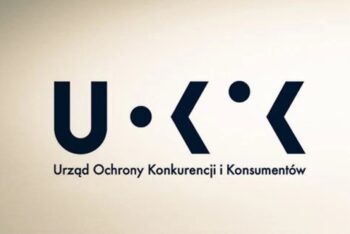In technology companies, this is a familiar and frequent scenario: a capable engineer, architect or consultant, after a few years of good work, is promoted to team leader.
On the surface, everything seems to fit – he has knowledge, experience and authority among his colleagues. Yet after a few months something starts to go wrong.
Team effectiveness declines. There is tension in communication. Initiative wanes. And no one can clearly pinpoint the cause. Only that it has already happened – on promotion day.
When an expert becomes a manager
In IT companies, promotion is often a reward for operational efficiency. The person who is commanding, knows the product inside out, can ‘put out fires’ and has high technical credibility is automatically put on the managerial track. The change in role seems logical – until it clashes with reality.
The problem starts when the new leader tries to continue acting like an expert. He still makes most decisions. He still solves problems on his own. Still knows the tools and technologies best.
All of this is starting to become a bottleneck. The team, instead of growing, is starting to run circles around him.
Added to this is the natural difficulty of moving from ‘I do alone’ to ‘I support others’ mode. Managing requires a completely different set of competences: talking, delegating, building autonomy, managing emotions and sometimes stepping back from being the number one expert. It’s a change not only functionally, but also mentally. And few are prepared for this role.
The team feels this first
The effects of a leader’s failed promotion are usually felt most quickly by the team. Employees lose their sense of influence because decisions are made over their heads or are ‘corrected’ by the boss. Feedback loses its importance because it is clear that the last word belongs to one person anyway. Meetings become one-sided and initiative gradually dies out.
Moreover, the leader himself is also often not comfortable in his new role. He or she has more responsibilities, less time to do the things he or she enjoys, more responsibility and less clear criteria for success.
In addition, there is no one to go to for support because no one has previously defined what a leadership role actually is in this company.
The result is frustration on both sides – only that no one speaks out about it. And yet the problem is not due to a lack of technical competence. On the contrary, it is their excess in the wrong place that becomes a problem.
Not everyone needs to manage to grow
Many partner companies do not have an alternative development path for experts who do not want or need to manage people. When ‘leadership’ is the only option for development, the organisation inadvertently pushes experts out of the roles they excel at into roles that burn them out – and cost the team far more than they realise.
The solution is not to abandon promotions. It is to consciously introduce a parallel expert path – one that gives prestige, real influence on technical decisions, access to strategic projects, while not forcing you to be a superior.
Such a path is already in place in larger organisations (e.g. Principal Engineer, Staff Architect), but it is also increasingly being implemented by dynamic MSPs and integrators.
This allows technical people to develop in what they do best – and the organisation does not lose key operational competencies.
When promotion makes sense – how to prepare for it
Of course, there are situations where it makes sense for an expert to move into a leadership role. But preparation is key. Before someone becomes formally a manager, it’s worth giving them a chance to test themselves in a smaller role: as a project leader, a mentor to junior staff, someone leading a retrospective or team meetings.
This allows you to test not only skills but also motivation. Does the person really want to manage? Does he or she derive satisfaction from working with people rather than solving technical problems? Is he or she able to listen, take feedback, delegate tasks?
It is also worth communicating clearly that promotion is not a merit award. It is a change of function – and a new set of expectations. Without this, any change of role becomes a lottery, with the motivation of the whole team at stake.
Leader is not another level of difficulty – it’s a different game
In technology companies, it is still too often assumed that development means moving into management. Meanwhile, an effective organisation needs both great specialists and informed leaders – but not necessarily in the same person.
A team with an unprepared manager may still ‘run on the engine’ of a good atmosphere and past successes for a while. But over time it will start to stagnate, avoid risks, lose momentum.
Therefore, before someone is promoted, it is worth asking one simple question: does he or she want to lead people – or has no one just shown him or her another way?












